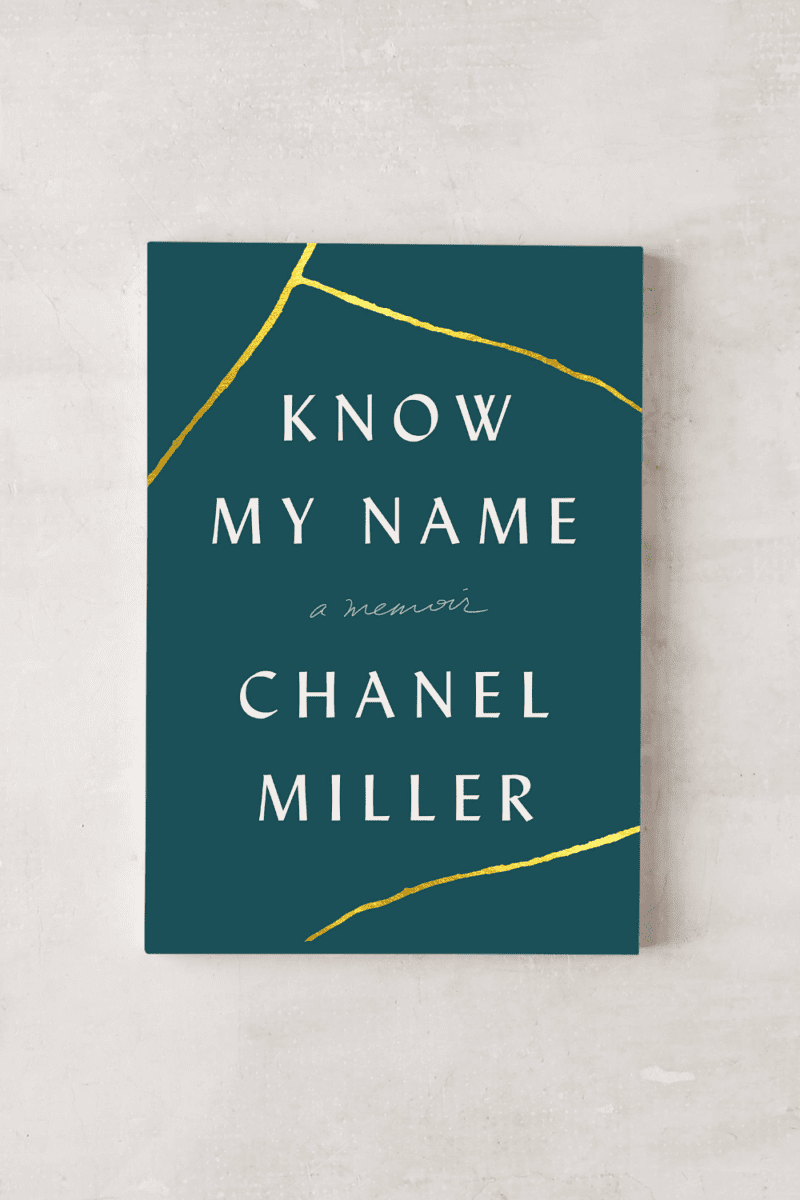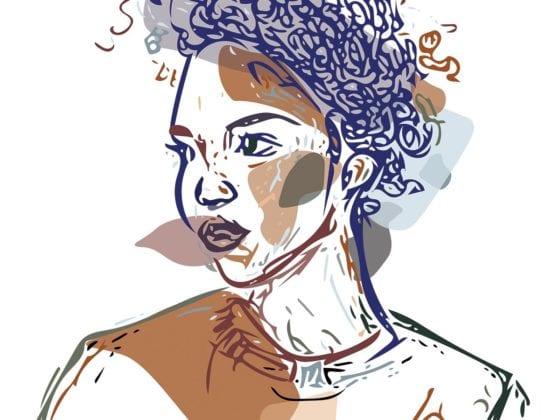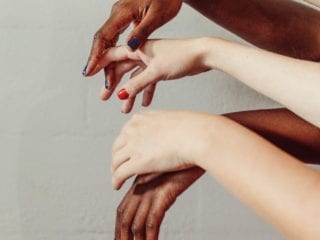Before we knew her name, 15 million people read her statement.
After Chanel Miller was raped on Stanford’s campus, she read a victim statement to the courtroom that went viral. Now, she’s telling her whole story in her new memoir, Know My Name. Miller starts the book with the day she’s attacked and traces her life for years after the assault. Her incredible writing and even more incredible grace and growth in the aftermath of trauma make this book a painful but necessary read.
This book is a painful but necessary read.
Miller’s writing is intimate and detailed from the beginning of the book, emphasizing the playful normalcy of the day leading up to the frat party where Brock Turner assaulted her. The way she jokes with her sister and her friends, the way she reluctantly agrees to go to the party, the way the girls slip into some drunken, freestyle rapping in the yard once they’re bored. It’s all familiar, and it’s meant to be. It’s an almost-heartwarming look into what it’s like to be young and carefree in the 21st century. Until, of course, it isn’t.
“I, to this day, believe none of what I did that evening is important, a handful of disposable memories. But these events will be relentlessly raked over, again and again and again. What I did, what I said, will all be sliced, measured, calculated, presented to the public for evaluation. All because, somewhere at this party, is him.”
The lighthearted memory of girls celebrating their freedom vanishes once Miller wakes up. The prose becomes somehow both clinical and confused. The sentences are short and visceral. There’s physical detail without as much understanding of the context. A survivor of assault is both a victim and evidence. Her body violated and then, catalogued in a second, invasive procedure. Miller doesn’t remember being found, and piecing the evidence together as she does is an unnerving feeling.
A survivor of assault is both victim and evidence.
Miller is bracingly honest about her life. She lays out facts that shouldn’t matter but somehow do in the twisted calculus of calling a rape a rape. She had been drinking, a point in his favor. He had been drinking. Somehow also a point in his favor? When she was violated, Miller was in a happy relationship with a man who stood by her side throughout the court cases. However, she lets readers in on the summer before that relationship, through the ups and downs of a messy summer of dating that shouldn’t have any bearings on the fact that Brock Turner touched her when she didn’t want him to.
“To deny my messiness would be to deny my humanity,” she writes.
Miller’s vulnerability carries the book through incredibly uncomfortable territory. Each of the emotions involved in Miller’s healing—shock, fear, anger and mourning—are given space and anecdotes they need to be visceral. Yet, the way Miller speaks of her healing, cutting the before into the after, allows readers to see her as a full person, not just a one-dimensional victim.
The book is a testimony of progress, more than a manual for healing. Miller’s advocacy, for herself and for other victims, is as inspiring as her vulnerability to tell her story. It’s one thing to be strong, to face the details and trauma of the evil in this world. It’s another to be vulnerable once you’ve been hurt, to keep living in the face of that evil.
Miller’s advocacy, for herself and for other victims, is as inspiring as her vulnerability to tell her story.
I suppose some might say that this book is one-sided, but that assertion would erase the context of the last few years. We talked about Brock Turner and him alone for so long that he is the name people associate with this case. I remember parsing through what we knew of the case with my college roommates. I remember when Turner’s father argued his son shouldn’t be denied the steak that he loved so much for an accident. Miller’s dignity and the justice were comparable to a steak dinner.
It is not one-sided to finally have the other side of the story. I don’t know what’s happened to Brock Turner in the years since the case. Yet, I’m so proud of and humbled by Miller, a woman I’ve never spoken to but whose words will echo in my head for years, for allowing us all into her healing.
Miller writes with a level of clear-headedness and a lack of malice that only comes from the kind of forgiveness that isn’t weak enough to allow anyone to forget. It’s a forgiveness that calls for justice, that remembers the victims and that begs systems to be repaired.
This book is at times heartbreaking to read, but I’m glad we’re still talking about what happened to Chanel Miller. It’s a book to be read perhaps in small bites, with a teapot full of something comforting. Chanel Miller deserves to finally tell her story.
Why do you think Miller shared her story in the form of a book? How has it impacted you?
Image via Urban Outfitters










